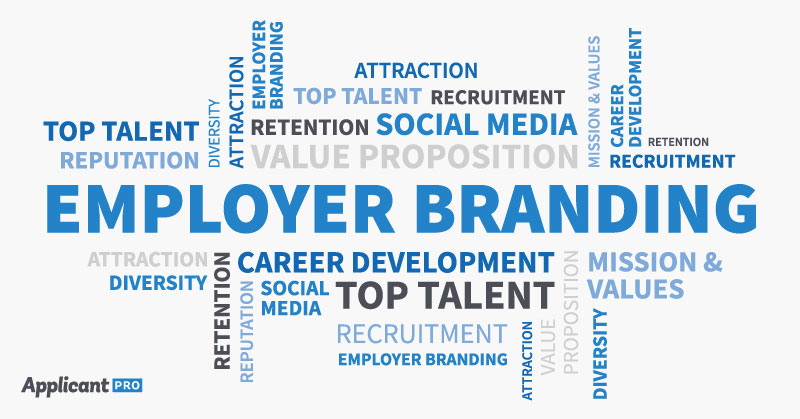

Does HR Have a Culture (People) Problem or a Branding Problem?
Today, I’m beginning a new series that will hopefully push the boundaries of how you perceive yourself as an HR Professional. What I’m going to be asking of you in the upcoming weeks is actually really simple: I want you to be completely honest with yourself about the role you play and your worth as an employee. What do you have to offer? What skills do you possess that makes you good at hiring/managing people? Does your value extend beyond the bare minimum HR duties you perform on a day-to-day basis?
How do you perceive yourself as an HR professional?
These questions may seem a bit intrusive – especially since I’m an outsider looking in, but they’re really the basis of what we’re going to be exploring for the next few weeks. Hopefully, by the time we finish this series, you’ll have a better understanding of yourself – both on a professional and personal level.
Attract More Highly Qualified Applicants
We spend countless hours researching the most effective, easy to implement, and FREE strategies that will dramatically boost your qualified applicant flow.
A couple weeks ago, I attended a SHRM event where the topic of focus was whether HR really has a people problem or if the misconception surrounding HR, stems from how HR markets themselves. So, what we’re really weighing here is whether we have an HR culture disconnect or an HR Branding issue. Not surprisingly, the SHRM leaders chalked up the opinion that HR is run by a bunch of “old ladies with gray hair” to HR’s failure in promoting an image that is more strategically focused.
And while I think that this notion is true for some HR folks (especially those that work for larger corporations), I don’t personally believe that this is the case for all HR Professionals. That being said, I think this is largely due in part to the evolving role of HR over the years.
The duties and responsibilities that affected HR tens of years ago shares few parallels with the HR of today”
Think about it; the duties and responsibilities that affected HR tens of years ago shares few parallels with the HR of today. One of the primary examples of this is compliance. Think about how much compliance has changed over the years and has also shaped your role. You have a tremendous responsibility as HR affiliates to grow and change at the same rate as the rest of the world and lack of willingness to do so could render your position obsolete. Trust me; I get it. It’s no easy feat.
So what I’d like to do is take you on a journey for the next month or so that will involve some pretty heavy self-examination. I’d like to share with you my take on all of this both as a business owner who works with hundreds of HR folks every month, and also as a mentor who presents a handful of strategic webinars/seminars to SHRM members. I’d really like to hone in on not only what it means to be strategic, but also how to execute a strategy that will transform HR’s role from one of compliance to one of organizational vision.
For more information about items mentioned in this article, contact us

Increase qualified applicant flow across the board.
Download this exclusive guide to improve your qualified applicant flow.
Share this article
Related Articles

Top Tips for Talent Acquisition in 2025: Strategies That Actually Work
Discover top talent acquisition strategies for 2025. Learn how to prioritize candidate experience, leverage AI ethically, embrace flexible work, and build a strong employer brand to attract and retain top talent in a competitive job market.

Building Your Employer Brand: Why it Matters and How to Do it Right
Build a strong employer brand to attract top talent, reduce turnover, and boost morale. Learn actionable steps to create an authentic, compelling company reputation.

Is AI Making Hiring Impossible?
Have you noticed the growing trend of job seekers using AI to create resumes, cover letters, and complete assessments? Learn strategies for spotting AI-generated applications, and how employers can adapt their recruitment processes to ensure they hire qualified candidates.